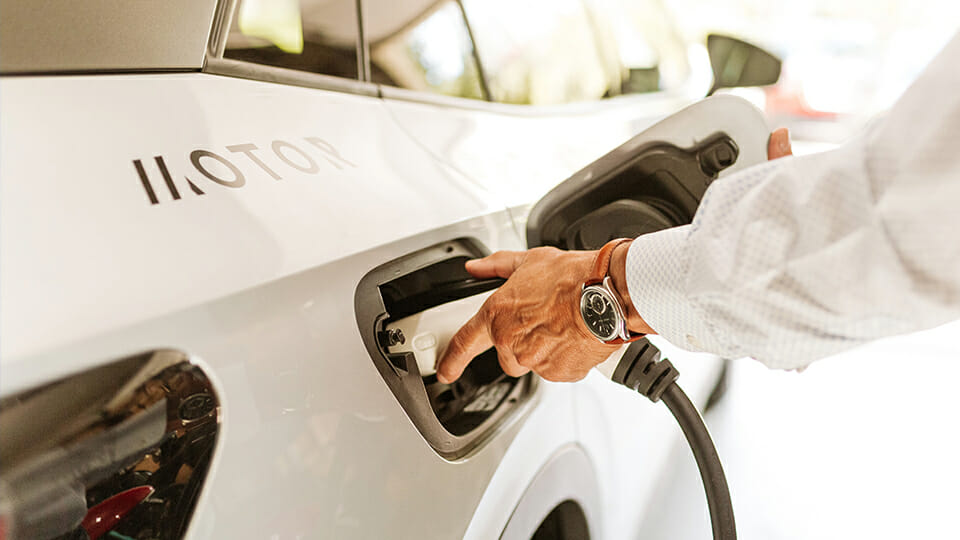Subscriber Benefit
As a subscriber you can listen to articles at work, in the car, or while you work out. Subscribe NowAmerican brands dominate a shorter list of electric vehicles that now qualify for consumer tax credits, after the Biden administration on Monday announced the models that meet tough new rules on where vehicle batteries must originate.
The new list, published at fueleconomy.gov, includes a total of 16 domestically manufactured models from Ford, General Motors, Tesla and Stellantis, maker of the Jeep and Chrysler brands. Nine models, mostly from foreign automakers, are no longer eligible.
Ten of the models on the new list qualify for the full $7,500 tax credit, with the rest qualifying for half that amount. Consumers buying the vehicles will receive the tax credits if their adjusted gross income does not exceed $150,000 for single taxpayers and $300,000 for married couples filing jointly. Qualifying vehicles must also be priced under caps established in the Inflation Reduction Act—$80,000 for SUVs, vans and pickup trucks, and $55,000 for other vehicles.
The new rules apply to vehicles delivered to consumers beginning Tuesday. The eligible vehicles include fully electric and plug-in hybrid models.
The consumer tax credits are a centerpiece of the Biden administration’s green-energy push, which aims to boost high-tech employment, lower carbon emissions and reduce U.S. reliance on Chinese-made goods. Industry observers see the tax incentives as critical to reducing the cost of electric vehicles, which on average still cost more than gasoline-powered cars.
At the beginning of this year, the administration allowed most domestically assembled electric vehicles to qualify for the credits. But to comply with the law, it is now enforcing additional rules about how much of the battery must originate in the United States or a country with which the United States has a free-trade agreement.
The new battery rules were designed to reduce U.S. reliance on materials made in China, which dominates the battery industry. They were crucial to winning the support of Sen. Joe Manchin III (D-W.Va.) for the law. Manchin has repeatedly pushed the U.S. auto sector to reduce its reliance on China.
EVs from foreign automakers that previously qualified for tax incentives did not make the updated list, including the Nissan Leaf and the Volkswagen ID.4, despite being assembled in the United States.
Nissan has not yet been able to certify that it meets the new battery requirements but is working with its suppliers and hopes to qualify for “at least partial credit in the future,” spokesman Jeff Wandell said.
VW is awaiting documentation from a supplier and is “fairly optimistic” it will qualify for a tax credit, spokesman Mark Gillies said.
The government plans to keep updating the list to reflect automakers’ changing battery supply chains.
To qualify for the full credit, automakers must show that 40 percent of the value of the “critical minerals” in the battery originates in the United States or a country with which it has a free-trade agreement. Automakers also must show that 50 percent of the value of the battery’s components originates in North America.
If the vehicles meet only one of those factors, they qualify for half the credit. The percentages will increase in future years, forcing automakers to source more and more of their battery materials from approved countries.
The new rules come as investors pour money into new battery-making facilities in the United States, though some analysts say U.S. reliance on battery minerals produced in China will be tough to break.
About 65 percent of the fully electric and plug-in hybrid vehicles sold in the United States in the first quarter qualified for the tax credit, according to the Biden administration. More than 90 percent of those sales remain eligible under the new rules, the administration said.
General Motors did particularly well under the new rules, with all of its EV models, including the Chevy Bolt and Bolt EUV, qualifying for the full credit. In a statement, the company said this was “made possible by GM’s historic investments in the U.S. to transform our portfolio, strengthen American manufacturing and jobs, and localize and build more secure and resilient supply chains.”
Three GM models expected to hit the market later this year were included on the list and qualify for the full credit—the all-electric versions of the Equinox and Blazer SUVs and the Silverado truck.
Ford’s F-150 Lightning pickup truck qualifies for the full credit, while the Mustang Mach-E and the Escape Plug-in Hybrid get half the credit, or $3,750.
Most of Tesla’s Model 3 and Model Y vehicles get the full credit, aside from the Model 3 with standard range and rear-wheel drive, which gets half.
The Chrysler Pacifica plug-in hybrid minivan gets a full credit, while Jeep plug-in hybrids get half.
Please enable JavaScript to view this content.

